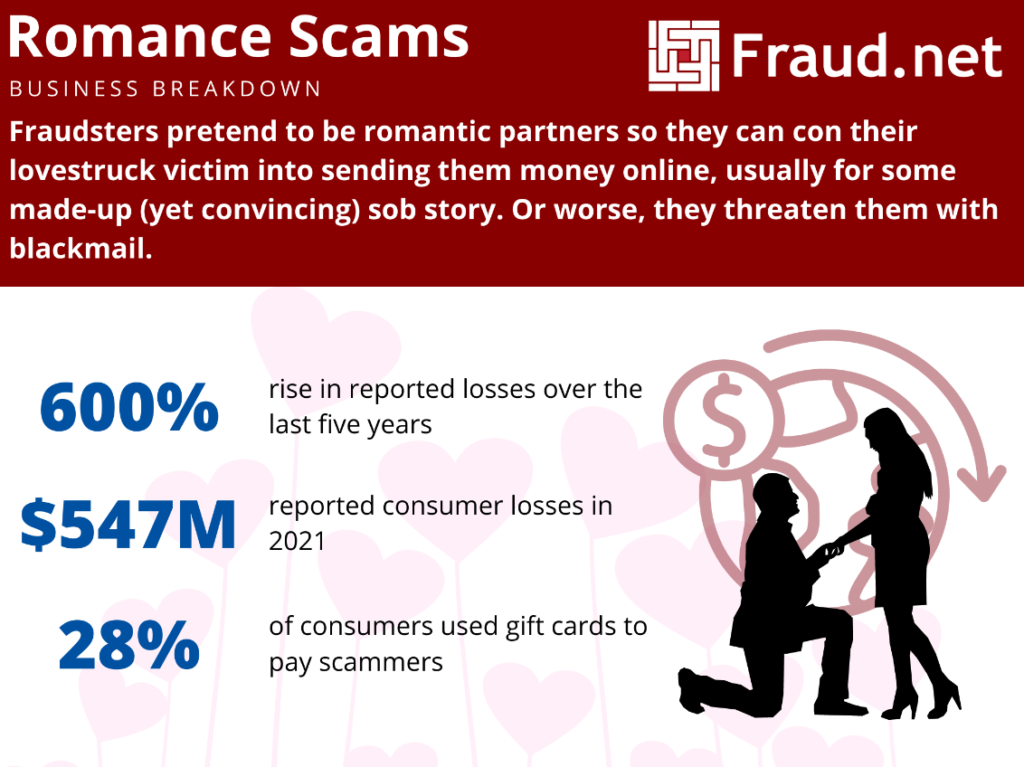
How to Avoid Romance Scams
If you’re looking for love online, it’s essential to know how to avoid romance scams. These con artists use romantic feelings to steal money from their victims.
Using dating apps, social media and other online platforms, they prey on people trying to meet someone special. They use elaborate stories to lure victims into a relationship, often asking for money before their true identity is revealed.
Be wary of strangers who contact you online.
Regarding the internet, it’s always best to avoid strangers – especially those who can harm you or your family. It would help if you also were mindful of what you post on social media and how you use it.
For instance, you should be cautious when posting a photo of yourself or your family in a public place. This is an excellent opportunity for scammers to get their hands on your images or, even worse, your personal information.
Similarly, it would help if you took care not to add strangers on Facebook without their permission. This is because they can access your information and hack into your accounts. It is also a good idea to ensure you use the best privacy settings and never share your passwords with strangers.
The best way to avoid getting suckered into fraud is to not click on any links in emails from strangers, particularly those sent from unknown senders. These can infect your computer with malware or give a hacker access to your account.
Finally, the most important reason to be wary of online scams is that they can lead to real-life problems such as financial loss or physical harm. There are many stories of victims of online scams who have ended up losing their homes, cars, or their very lives to people they met online.
There are also many other ways that you can help keep yourself and your family safe online. By learning about the latest in cybersecurity, you can protect your family from hackers and other malicious online predators. The internet is a beautiful place to meet new friends, explore your creativity and be creative, but it’s always best to avoid strangers or fakes from the start.

Don’t give out personal information.
Romance scams are a type of social manipulation that targets vulnerable people. They involve a criminal creating fake profiles on dating websites and apps or through popular social media platforms like Instagram or Facebook, then building a relationship with the victim to gain their trust and money.
Scammers often target older individuals (over 50), women, or those who have recently been divorced or widowed. These people are usually more likely to have a nice nest egg or assets, which scammers can use to steal their money and property.
According to the FTC, in 2021, people reported a record $547 million in losses to romance scams, up about 80% from reports in 2020. These scams can take many forms, but they all have one thing in common: They are based on a misunderstanding between two people.
A romance scammer will usually start with overly complimentary messages. They may also make up a story to explain why they need money.
They often claim they need the money for a medical emergency, unexpected legal fee or travel expenses. They might also say they’re in a relationship with someone else or working on a construction project outside the U.S. These excuses are easier to believe and make them more plausible when they ask for money, says trial lawyer and partner at The Clark Law Office David Clark.
Stop all contact immediately if you suspect a romantic relationship is a scam. You should also report the scammer to the dating site or app that you communicated with them on and file an official complaint.
In the meantime, keep yourself safe by using a comprehensive antivirus solution that offers complete protection against online threats. Avast One, for example, provides a full range of security features to help you stay protected online.
The most important tip for staying safe is to not give out personal information to strangers who contact you online. This includes your real name, address, phone number and social security number, and other details that should remain private.
Scammers use this information to get a hold of your bank account and other essential details that could be used for identity theft. They also use phishing tactics similar to email fraud to access your accounts and personal information.

Be wary of people who ask for money.
Romance scams are one of the most popular forms of online fraud. These con artists often use fake profiles, photos, and stories to convince victims to send money or give them personal information.
The majority of romance scams begin on dating sites or apps. But they also target people on social media and via email.
When someone starts communicating with you on these platforms, they may ask you to meet in person. This is a red flag that something is off.
In addition to meeting in person, many scammers will also ask you for your personal information, such as your bank account number or email address. They want to use this information to access your account and steal your money.
If you’re feeling uneasy, stop chatting with them immediately and tell a friend or family member what’s happening. This will give you time to think about whether the person is legitimate or not.
Another red flag is if they use terms like “my love,” “honey,” or “babe” too early in the relationship. This is an attempt to mass market their fraud to hundreds of victims at once.
A third red flag is if they ask you to wire them money or buy cryptocurrency. These are illegal activities and are often part of international criminal networks.
The FBI reports that people lost $304 million in 2020 to romance scams — nine times more than they did in 2019. Scammers use dating apps and social media to lure victims into sending them money.
As a result, older adults were among the biggest victims of romance scams in 2020. In fact, 12% of Americans 55 and older reported using mobile dating apps.
As a result, it’s essential to be wary of strangers who contact you online. This includes anyone who claims to be a loved one or has a special connection to you.
Don’t send money.
If you meet someone on a dating site or app, be cautious when it comes to deciding whether to send them money. Romance scammers are savvy, and they use the emotions you feel to convince you to trust them with your money. They will tell you they need your help for urgent reasons, like emergency surgery or a plane ticket to visit you.
If someone you’re communicating with on a dating site or app is begging for your money, take them off the platform right away. They might be an imposter or a romance scammer.
These scammers prey on vulnerable people by making promises of love and marriage in exchange for money. They will often promise to meet you in person and then never follow through. They will also make excuses for why they can’t meet in person, even when you try to make arrangements.
It’s important to note that these scammers can be anywhere in the world. They’ll often use fake profile pictures to fool you into thinking they’re a natural person and then will ask for money in a variety of ways. They may offer to wire money or put it on a gift card, or they might use a money transfer service or cryptocurrency to send you money.
Scammers want to get your money quickly, and they’ll often pressure you into sending them more than you can afford. They might even try to make you feel guilty for not sending them money right away.
When you’re sending a stranger money, be sure to take screenshots of any messages or receipts that show the payment. These can be helpful if you need to report the scam to law enforcement.
Once you’ve gathered evidence, contact your bank or other financial institution to stop the payments and report the scam. They will be able to help you get your money back.








